If you’re exploring a content management system (CMS) for your website, you’re not just picking software — you’re choosing the foundation of your digital presence. The right platform can streamline your workflows, support your marketing strategy, and scale as your business grows. The wrong one can slow you down, inflate costs, and create unnecessary technical friction.
When it comes to Sitecore vs WordPress, the decision often comes down to alignment. What are your business goals? How much flexibility do you need? What’s your budget? And how complex does your digital ecosystem really need to be? Both Sitecore and WordPress offer powerful capabilities — but they’re built with very different philosophies and audiences in mind.
In this guide, we’ll walk through a practical, side-by-side comparison of Sitecore and WordPress. We’ll evaluate the areas that matter most to decision-makers — usability, customization, marketing capabilities, performance, security, scalability, and total cost of ownership — so you can make an informed choice with confidence.
What is WordPress?
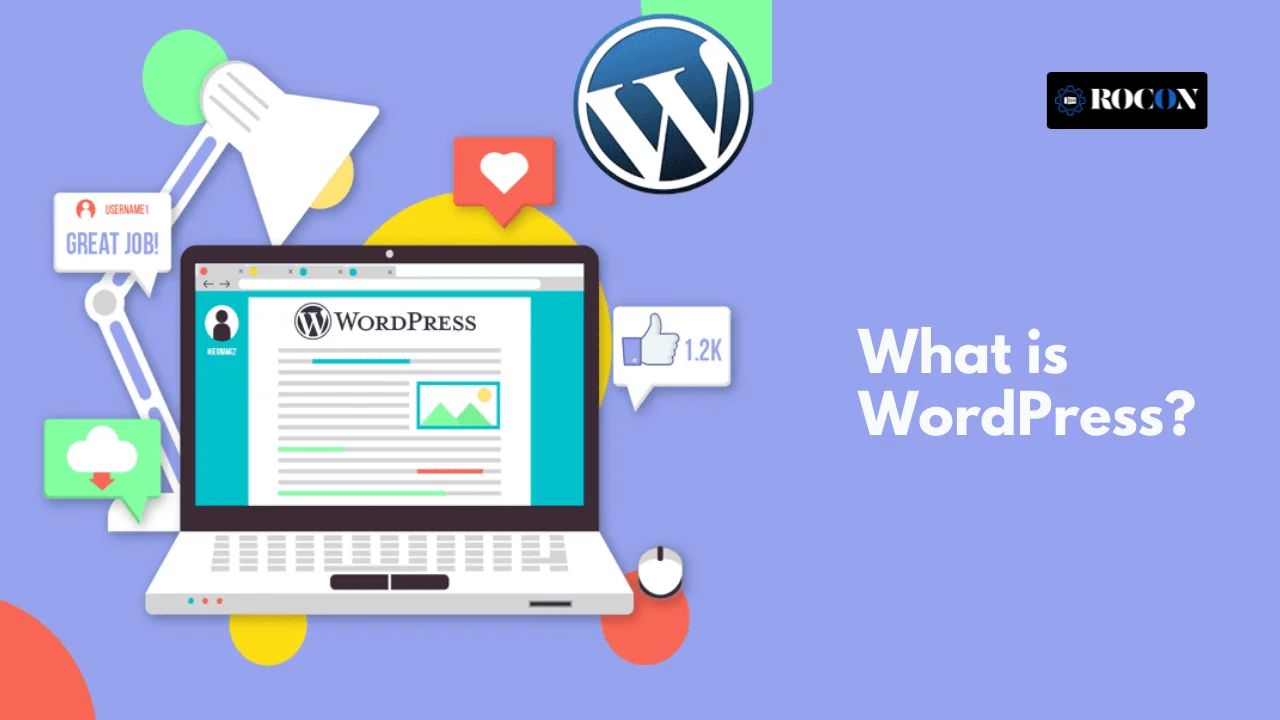
WordPress is the world’s most widely used open-source CMS, powering more than 43% of websites globally. What started in 2003 as a simple blogging platform has evolved into a powerful, highly adaptable system that supports everything from personal blogs to large-scale enterprise websites.
One of WordPress’s greatest strengths is its flexibility. Whether you’re creating a content-focused blog, a corporate website, an eCommerce store, a membership platform, or a digital publication, WordPress provides the foundation to build and scale. Its vast ecosystem of themes and plugins allows businesses to extend functionality without rebuilding from scratch — and often without heavy custom development.
Beyond its feature set, WordPress is known for its ease of use. The dashboard is intuitive, enabling marketing teams, editors, and business owners to publish and manage content without depending on developers for routine updates. At the same time, developers value its extensibility, APIs, and ability to support custom architecture when advanced functionality is required.
Who is WordPress Best Suited For?
- Startups and small businesses: Companies that need a professional, scalable website without enterprise-level licensing costs.
- Bloggers and content creators: Individuals and publishers who prioritize content management, SEO control, and ease of publishing.
- Agencies and freelancers: Teams building multiple client websites that value speed, flexibility, and a broad plugin ecosystem.
- Enterprise organizations seeking agility: Larger companies that want customization, integration capabilities, and scalability.
What is Sitecore?
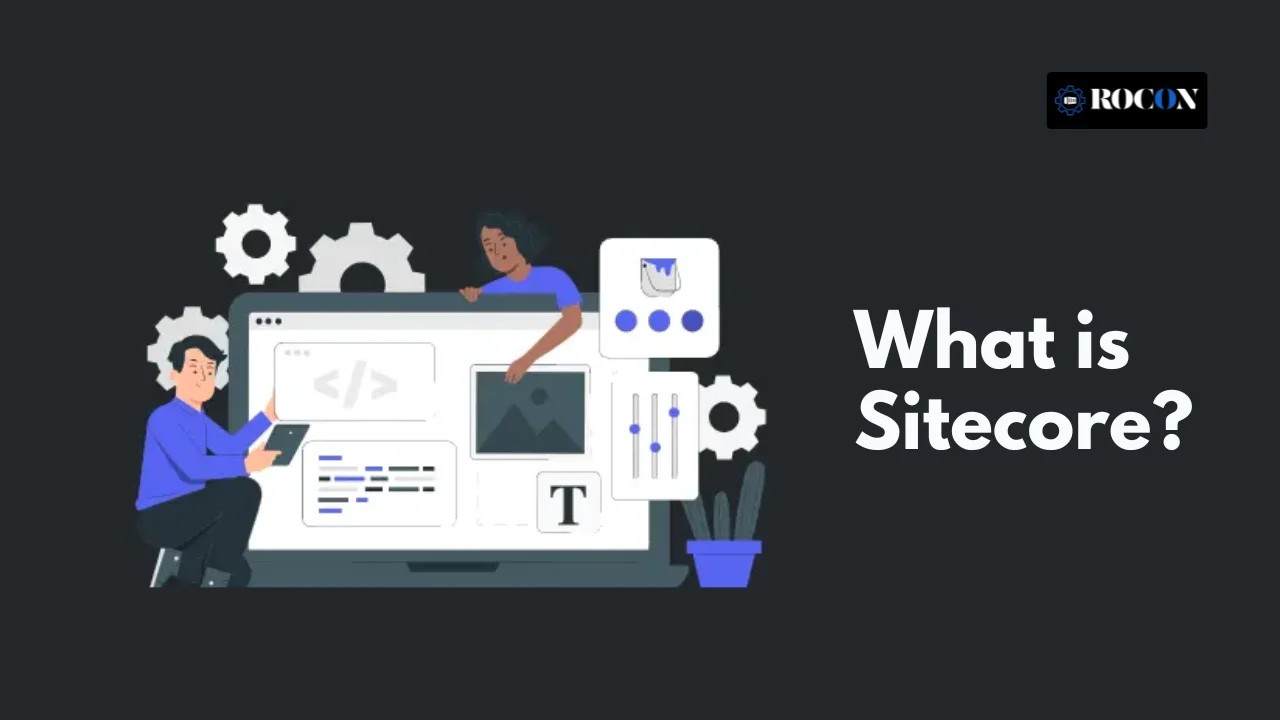
Sitecore is an enterprise-level content management system introduced in 2001. Over time, it has evolved into a comprehensive Digital Experience Platform (DXP) that combines content management with advanced marketing automation, customer data management, and personalization tools.
Unlike traditional CMS platforms that primarily focus on publishing and organizing content, Sitecore is built to support complex digital environments. It allows large organizations to deliver personalized experiences across multiple channels — including websites, mobile applications, and email marketing — all driven by centralized customer data and behavioral insights.
Sitecore is widely recognized for its scalability and extensive customization capabilities. Enterprises managing high traffic volumes, multiple brands, or global digital operations often choose Sitecore for its structured architecture and governance features. However, it is not open source. Sitecore operates on a paid licensing model and typically involves substantial implementation and ongoing maintenance costs, making it a considerable investment best suited for larger organizations.
Who is Sitecore Best Suited For?
- Large enterprises: Organizations with complex digital infrastructures and global content operations.
- Brands with dedicated in-house IT teams: Companies that have the technical resources to manage a sophisticated enterprise platform.
- Businesses focused on omnichannel personalization: Enterprises are investing heavily in data-driven marketing, customer segmentation, and advanced experience management.
Head-to-Head Comparison: Sitecore vs WordPress
This is what actually happens when businesses implement, manage, and scale these platforms in real-world environments.
1. Licensing & Cost
WordPress is open-source, which means there are no licensing fees to access or use the software. Instead of paying annual platform charges, organizations invest in infrastructure, development, premium tools, and ongoing optimization. For enterprise-level implementations, the total cost of ownership typically ranges from $50,000 to $250,000 per year, depending on traffic volume, customization needs, security standards, and hosting architecture.
Sitecore operates on a subscription-based enterprise model with significant recurring fees. Annual licensing typically starts around $80,000 and can exceed $500,000 for larger, multi-site, or highly personalized deployments. When you factor in implementation costs, enterprise cloud infrastructure, third-party integrations, and ongoing development and support, total annual ownership costs often range from $500,000 to $2,000,000, depending on the overall complexity of the environment.
Enterprise Total Cost of Ownership Comparison:
|
Cost
|
Sitecore |
WordPress
|
| Licence Fee |
$75,000/Year |
$0/Year |
| Example Build Cost |
$165,000-250,000 |
$100,000-200,000 |
| Maintenance Cost |
$15,000/Year |
$11,000/Year |
| Hosting Cost |
$5000-10,000/Year |
$5000-7000/Year |
| Ongoing Development Cost |
$1500-2000+/Year |
$1500-2000/Year |
2. Time to Launch
WordPress projects move fast. With the right hosting stack, like Rocon, and development workflow, businesses can launch in weeks. Content teams can begin populating pages early in the process, and iterative improvements are easy after launch.
Sitecore projects are different. Architecture planning, environment configuration, personalization mapping, and integrations often stretch timelines into several months. It’s common for enterprises to run multi-phase rollouts.
3. Ease of Use
WordPress stands out for its intuitive interface and beginner-friendly design, considering the ease of use. WordPress powers over 43.5% of websites globally, ranging from blogs to enterprise sites. The platform is user-friendly for any technical skill level, with hundreds of themes and plugins to make setup and management easy. If you’re new to CMS, WordPress will likely feel more approachable, as the dashboard is easy to navigate and manage content.
Sitecore is an enterprise-level platform that requires technical knowledge to use effectively. While Sitecore’s interface can be overwhelming for new users. It’s designed for larger organisations, so many of the advanced features will be too much for beginners. But for organisations with a technical team, Sitecore offers unparalleled functionality.
4. Scalability
WordPress scales differently. Its growth potential depends largely on hosting architecture and optimization. When deployed on high-performance, managed infrastructure with proper caching and resource allocation, WordPress can handle enterprise-level traffic efficiently without the overhead of a rigid enterprise system.
Sitecore was built for large, complex digital ecosystems. It supports multi-brand structures, global content operations, and advanced personalization across channels, making it a strong fit for enterprises with layered governance and heavy traffic demands.
5. Performance & Speed
WordPress is naturally lightweight at its core. When combined with proper caching, CDN integration, database optimization, and high-performance managed hosting, it can deliver extremely fast load times — even for high-traffic websites. Speed largely depends on how well the environment is configured, not the platform itself.
Sitecore includes built-in personalization engines and marketing automation layers, which make the system heavier by default. While it can be optimized for performance, doing so typically requires deeper infrastructure planning and experienced DevOps support.
In practical terms, WordPress achieves speed through efficient setup, while Sitecore requires more technical resources to reach similar performance levels.
6. Security Features
WordPress is secure at its core and receives regular updates from a global development community. However, real-world security strength depends on how it’s configured. With hardened hosting environments, web application firewalls (WAF), malware scanning, strong access policies, automatic updates, and continuous monitoring, WordPress can meet enterprise-grade security standards.
Sitecore comes with enterprise-focused security controls built into its architecture. It supports granular role-based access, structured permission layers, and centralized governance, which is especially useful for large organizations managing multiple teams and sensitive data. Security is tightly integrated into the platform’s framework, making compliance and internal control easier to enforce.
7. E-commerce & Third-Party Integrations
WordPress connects smoothly with most modern business tools. Whether it’s CRM platforms, payment gateways, ERP systems, email marketing software, or analytics tools, integrations are usually handled through well-supported plugins or APIs. For e-commerce, solutions like WooCommerce make it straightforward to manage products, payments, shipping, and inventory without complex development. This modular ecosystem keeps integration costs predictable and deployment timelines short.
Sitecore also supports deep enterprise integrations, including CRM, marketing automation, and commerce platforms. However, these connections are typically custom-built and managed by certified implementation partners. While the integrations can be powerful and highly tailored, they often require longer development cycles and significantly higher investment.
In practical terms, WordPress offers faster, plug-and-play integration flexibility, while Sitecore delivers enterprise-grade connections that demand more time and technical resources.
8. SEO and Marketing Capabilities
WordPress is widely favored for SEO plugins like Yoast SEO because it gives teams direct control over critical ranking factors. Clean URL structures, custom meta titles and descriptions, schema markup, internal linking, image optimization, and page-level technical settings are easy to manage. Marketing teams can update content, optimize pages, and launch campaigns without waiting on developers, which makes ongoing SEO execution faster and more consistent.
Sitecore focuses heavily on marketing automation and customer personalization. It allows enterprises to build segmented journeys, trigger behavioral campaigns, and manage omnichannel experiences from one platform. While it supports SEO, workflows often require more structured configuration and technical setup compared to WordPress.
In practical terms, WordPress offers agility for content-driven SEO growth, while Sitecore is stronger when advanced personalization and data-driven marketing are the primary priorities.
9. Design and Customization Options
WordPress gives businesses complete control over how their website looks and feels. From fully custom themes to advanced page builders and even headless setups, design flexibility is virtually unlimited. Brands can shape the front end around their exact identity without being locked into rigid templates, and updates can be rolled out quickly when marketing needs change.
Sitecore also supports deep customization, especially for large digital ecosystems. However, most design changes require developer involvement and structured deployment workflows. This adds governance and stability, but it can slow down iteration.
In real-world use, both platforms are highly customizable — but WordPress typically enables faster design updates and more agile front-end experimentation.
10. Plugins and Extensions
WordPress is powered by one of the largest plugin ecosystems in the world. There are thousands of extensions available to add functionality such as SEO tools, security layers, performance optimization, eCommerce features, CRM connections, and more. Most features can be implemented quickly without heavy custom coding, which keeps development cycles short and costs predictable.
Sitecore does not rely on a broad plugin marketplace. Feature expansion typically happens through official modules or custom-built development handled by specialized teams. While this approach offers structured control and enterprise stability, it often requires longer planning and implementation timelines.
In practice, WordPress allows faster feature deployment through modular extensions, while Sitecore follows a more controlled, development-driven expansion model.
11. Customization and Flexibility
WordPress is open-source, giving developers full access to the codebase and a vast ecosystem of more than 59,000 plugins and 12,000 themes. Developers can extend APIs, create custom plugins, modify functionality, and design the architecture around specific business requirements without licensing restrictions. This flexibility makes WordPress highly adaptable — whether you’re building a headless setup, integrating complex systems, or developing custom workflows tailored to your organization.
Sitecore also supports deep customization, particularly for enterprise-grade digital environments. However, it operates within a proprietary framework, meaning development must align with its structured architecture and licensing model. Customizations are powerful but typically require certified expertise and formal deployment processes.
In practical terms, WordPress offers greater architectural flexibility, while Sitecore delivers customization within a more controlled enterprise ecosystem.
12. Team Management and Collaboration
WordPress includes built-in user roles such as Administrator, Editor, Author, and Contributor, allowing teams to manage permissions clearly and efficiently. Editorial workflows, content scheduling, and approval processes can be handled smoothly, especially with workflow extensions when needed. For most small to mid-sized businesses — and even many enterprises — WordPress provides more than enough structure for collaborative content management without adding unnecessary complexity.
Sitecore is built with enterprise governance in mind. It supports highly granular permissions, structured workflows, and layered approval systems that work well in large organizations with multiple departments, regional teams, and strict compliance requirements. This level of control is valuable in complex corporate environments but often requires formal setup and administrative oversight.
13. Support and Community
WordPress is backed by one of the largest developer communities in the world. There is extensive documentation, active forums, global agencies, and a wide pool of freelancers and enterprise partners. This makes it easier to find skilled talent, resolve issues quickly, and manage costs efficiently over time.
Sitecore provides structured enterprise support through certified partners and official support channels. While highly professional, the ecosystem is smaller and more specialized, meaning expertise can be harder to source and typically comes at a higher cost.
How to Choose the Best CMS for Your Business
Choosing a CMS is a strategic decision — it affects marketing agility, development costs, security posture, and long-term scalability. The right platform should support how your teams actually work while remaining sustainable as your digital ecosystem grows. Here’s what truly defines a strong enterprise CMS:
1. Ease of Use
An effective CMS reduces dependency on developers for day-to-day updates. Marketing and content teams should be able to publish, edit, and optimize content through an intuitive interface with structured workflows. Faster content deployment directly impacts campaign speed and time-to-market.
2. Customization and Flexibility
Your CMS should adapt to your business — not the other way around. Open APIs, integration capabilities with CRM, ERP, payment gateways, and marketing platforms, plus support for custom development, ensure the system aligns with operational requirements and brand standards.
3. Security and Governance
Enterprise platforms must provide role-based access control, regular security updates, authentication safeguards (such as multi-factor authentication), and compatibility with firewalls and monitoring systems. Security should be manageable, auditable, and aligned with compliance needs.
4. Performance and Reliability
Fast load times influence both user experience and search rankings. A strong CMS supports caching, CDN integration, optimized database architecture, and scalable cloud or container-based hosting to maintain performance under heavy traffic.
5. Scalability
Growth should not require rebuilding your platform. The right CMS handles increased traffic, additional content, multi-site structures, and global expansion without compromising stability or speed.
6. SEO and Marketing Capabilities
Built-in SEO controls, metadata management, structured URLs, schema support, and integration with analytics and marketing automation tools are critical. Your CMS should empower marketing teams to execute campaigns without constant technical intervention.
7. Support and Ecosystem
Access to skilled developers, implementation partners, documentation, and active support channels reduces operational risk. A strong ecosystem ensures long-term platform sustainability and faster problem resolution.
When to Choose Sitecore
- Best for Large Enterprises: Sitecore works well for global organizations managing multiple brands, regions, and complex approval structures.
- Strong Personalization Needs: Ideal if your strategy relies heavily on customer data, marketing automation, and advanced personalization across channels.
- Long-Term Digital Investment: Best suited for companies ready to commit to higher budgets in exchange for centralized control and enterprise-level capabilities.
- When It May Be Too Much: If your focus is mainly on content publishing, lead generation, or standard e-commerce, Sitecore’s cost and complexity can be more than necessary.
When to Choose WordPress
- Great for Small to Mid-Size Businesses: WordPress is cost-effective, flexible, and easy to manage for growing businesses.
- Enterprise-Ready Options Available: With platforms like Rocon or headless setups, WordPress can handle high traffic and complex integrations.
- Faster Marketing Execution: Content teams can publish, optimize, and update pages quickly without heavy developer dependency, improving agility and speed to market.
Final Thoughts
Selecting the right CMS directly impacts cost, operational efficiency, and long-term scalability. Sitecore is a strong fit for large enterprises that require deep personalization, structured governance, and the budget to support a complex digital ecosystem.
WordPress, on the other hand, delivers flexibility, faster deployment, and lower total ownership costs, making it practical for growing businesses and even enterprises with the right infrastructure.
The decision should come down to three factors: how complex your digital operations are, how much internal technical support you have, and how much you are prepared to invest long-term. If advanced personalization and centralized enterprise control are core to your strategy, Sitecore makes sense. If agility, cost-efficiency, and marketing independence are priorities, WordPress is often the smarter choice.
Sitecore vs WordPress FAQs
1. Which CMS is more affordable for small businesses, WordPress or Sitecore?
WordPress is generally more affordable, as it’s open-source and free to use. Costs primarily come from optional premium themes, plugins, and hosting services, making it a great choice for small businesses. Sitecore, being a proprietary CMS with licensing fees, is often more suitable for larger organizations with higher budgets.
2. Can I use WordPress for an enterprise-level website?
Yes, WordPress can scale to handle enterprise-level sites, especially with solutions like WordPress VIP and high-performance hosting providers. However, for highly complex integrations and personalized customer experiences, Sitecore may offer more built-in tools.
3. Does Sitecore require technical expertise to operate?
Yes, Sitecore is an enterprise-grade platform that requires technical expertise to fully utilize its features. It’s best suited for organizations with IT support or dedicated development resources, while WordPress is known for being more beginner-friendly.
4. Is Sitecore or WordPress better for content marketing?
WordPress is excellent for content marketing, with plugins like Yoast SEO and easy blog management features. However, Sitecore offers more advanced personalization and automation tools, making it powerful for enterprises focused on data-driven marketing and highly targeted content.
5. How do Sitecore and WordPress handle security?
Sitecore offers built-in, enterprise-grade security, which makes it ideal for businesses handling sensitive data. WordPress can also be secure, but it relies on regular updates and reputable themes and plugins. With proper management, WordPress can meet security standards, though Sitecore offers a more comprehensive built-in security framework.
6. Which CMS is better for SEO, Sitecore or WordPress?
Both can be optimized for SEO, but WordPress is often favored for SEO due to plugins like Yoast SEO, which simplify the process. Sitecore also has SEO tools, but they are more integrated with its broader marketing ecosystem, making it suitable for enterprises with advanced SEO needs.
7. Can I migrate from WordPress to Sitecore (or vice versa) if my needs change?
Migration is possible, but it can be a complex process, especially from WordPress to Sitecore due to differences in data structures and integrations. If you anticipate potential migration needs, planning with a developer or migration expert can make the process smoother.


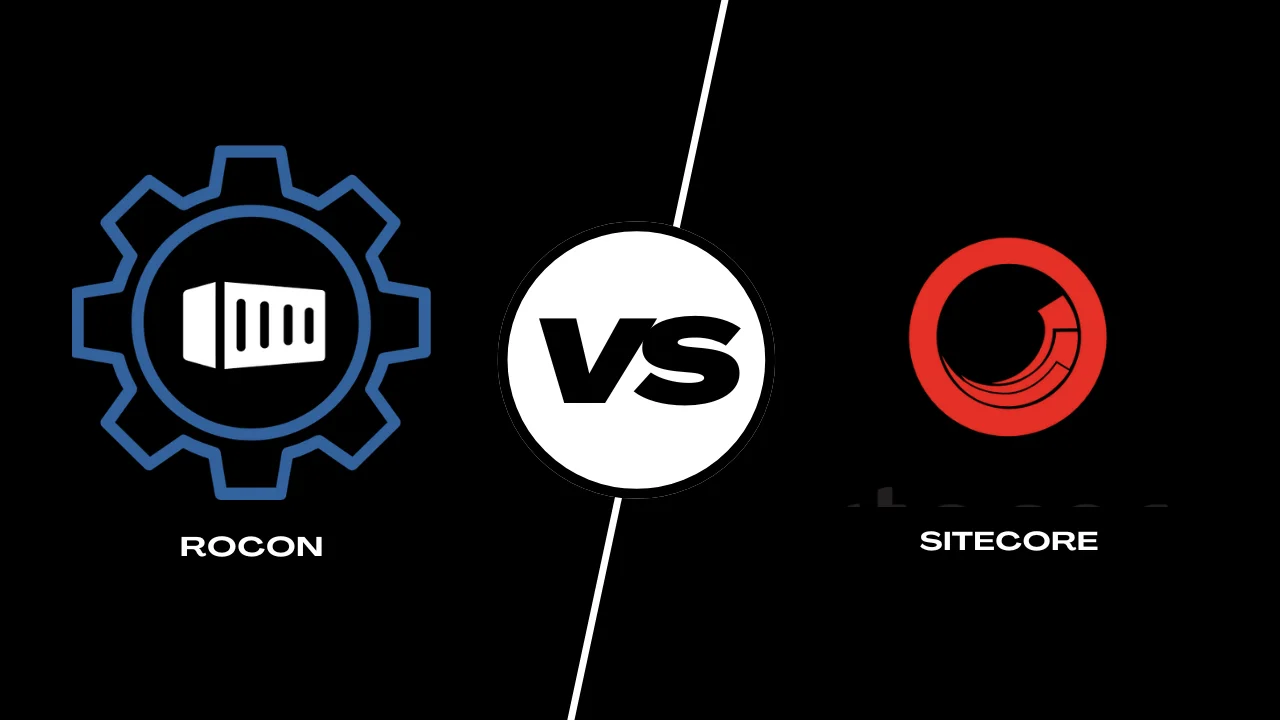


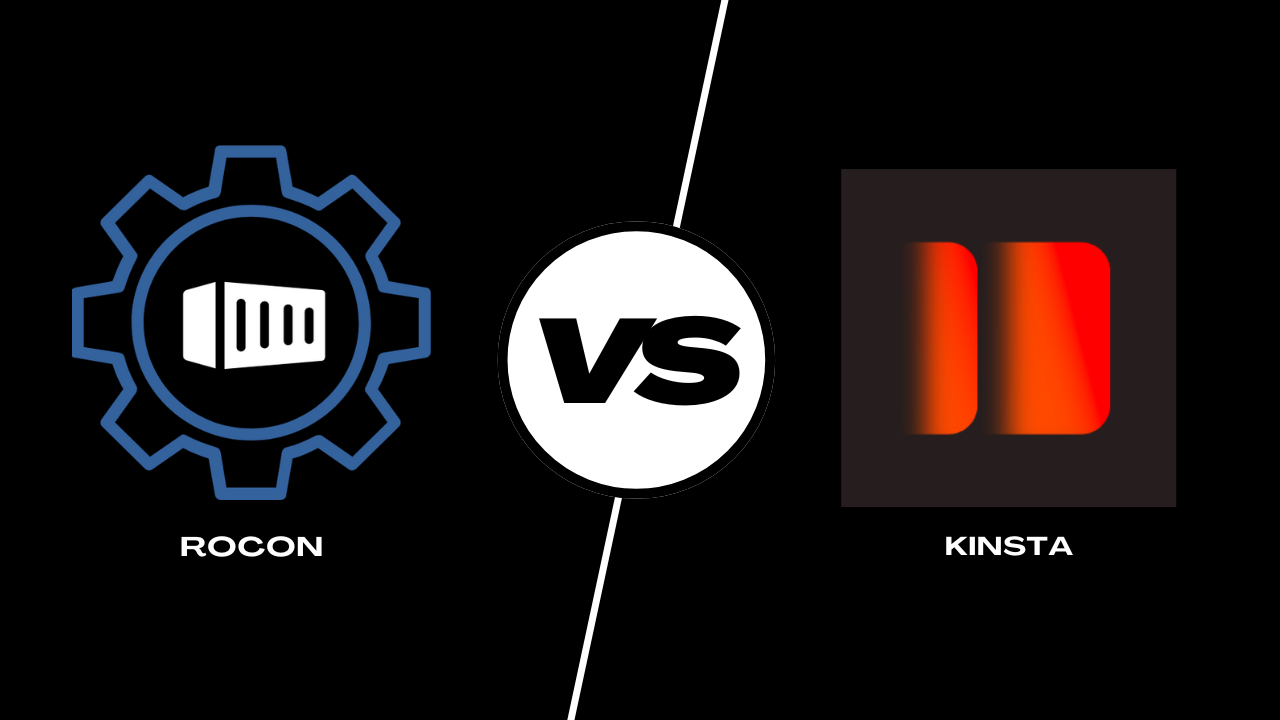

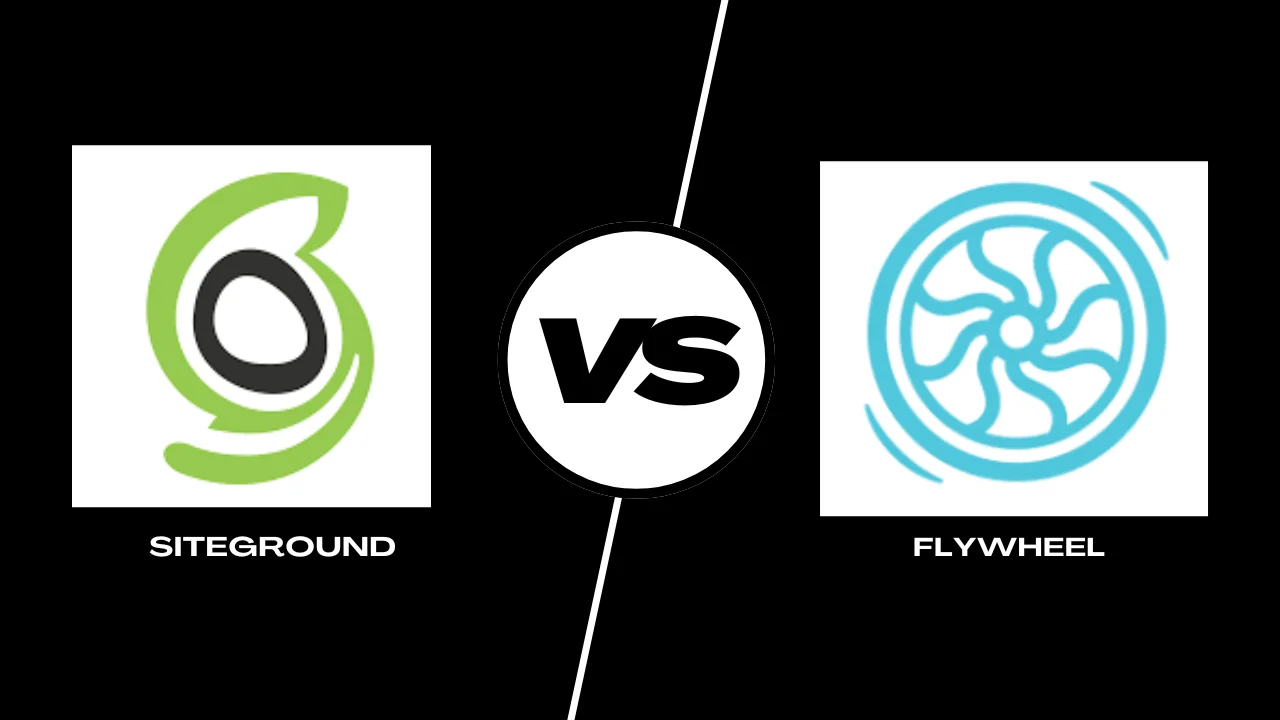
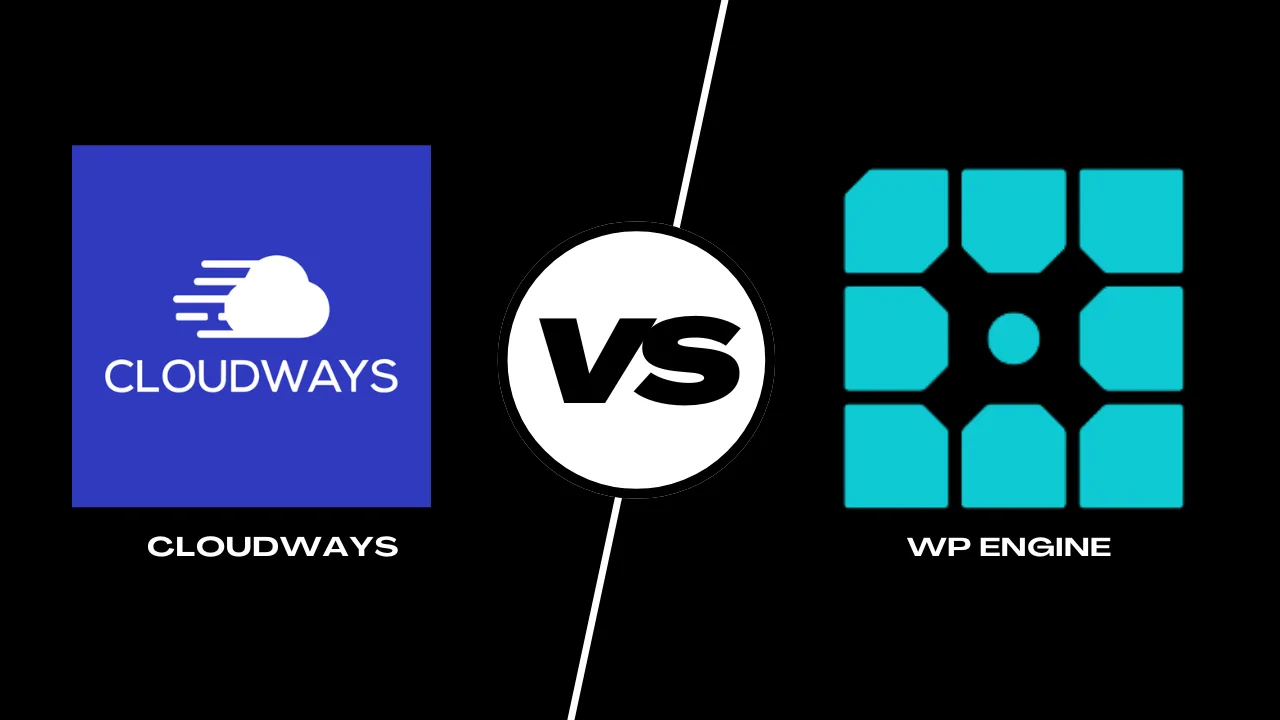

Leave a Reply